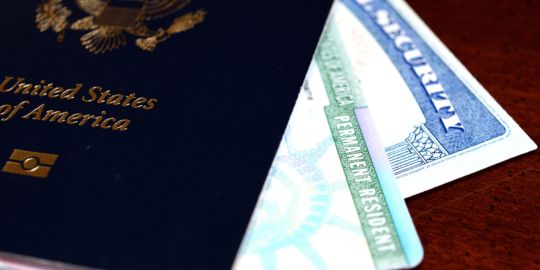Indian expats bore the brunt of the 2023 US tech layoffs
Early 2023 saw an employment crisis in the US's prestigious and lucrative tech sector. As reported by Crunchbase News, over 150,000 tech workers were laid off in the first few months of this year. This happened to workers in tech giants like Google, Microsoft, or Amazon and workers in smaller startups, including young fintech startups. Some laid off a sizable portion of their workforce. Case in point, Zoom, the well-known video-conferencing software company, laid off 15% of all its employees, Crunchbase's tracker of tech layoffs shows.
Many Indian expats in the US work in the tech and wider STEM sector. They often enter the country on H-1B visas, which is a nonimmigrant work visa for highly-qualified workers in “speciality occupations.” In 2021, a stunning 75% of all new H-1B visas approved were for Indian applicants. With this visa, they can work for up to 6 years in jobs for which American employers struggle to find local candidates. As it can't be renewed beyond 6 years, H-1B visa holders have to switch to another visa along the way (e.g., E-2 investor visa) or apply for a Green Card. Unfortunately, the waiting list for Green Cards is very long. Some Indian expats also first enter the US as international students and then get a 2-year Optional Practical Training (OPT) work permit for STEM graduates. That is another common route.
Various press sources estimate that Indian expats make up as much as 30-40% of all the tech workers affected by the 2023 layoffs. The BBC interviewed some of these affected Indian expats, some of whom have been in the US for many years and have already built a life here. Their circle of friends is in the US; they might be engaged/married and might have already applied for a mortgage house loan – even if they are still waiting for a Green Card. Legally speaking, laid-off expat workers only have a short grace period of 60 days following their termination to find another job. Otherwise, they risk deportation. This became a great source of stress for laid-off Indian techies.
US Immigration has broadened the “compelling circumstances” parameters
In mid-2023, US President Joe Biden and Indian Prime Minister Narendra Modi met to discuss the diplomatic collaboration between their respective countries. One of the positive outcomes of this meeting is an agreement to allow laid-off Indian expats to apply for a 1-year Employment Authorization Document (EAD) if they have “compelling circumstances.” They can search for another employer to sponsor them for a new H-1B visa while they're working temporarily on their 1-year EAD.
What are “compelling circumstances”? This encompasses various adverse circumstances that expats can face after being terminated from their job. They include:
- Involvement in a legal dispute with their former employer concerning the conditions of their termination or other illegal/abusive conduct from the employer.
- Disability or serious illness that will make it hard to leave the US. This includes ongoing treatment for a serious chronic health issue (e.g., heart disease) with a US-based doctor. Losing US-based health insurance can also count as a compelling circumstance.
- Significant financial harm. If the expat already has a house and mortgage loan in the US, returning to India will bring them substantial financial loss. The cost of relocating to India (flight ticket, rent deposit) also counts if they're beyond the expat's means. Expats need to submit their financial records (payslips, bank statements, etc.) and documentation for their financial liabilities (e.g., any loan agreements).
- Significant family disruption, especially the case if the expat has children who are attending a school in the US. It doesn't matter if the children were born in India, in the US, or elsewhere.
The United States Citizenship and Immigration Services has published a list of the other eligibility criteria beyond the compelling circumstances. First, the Indian expat must be residing legally in the US under one of the following unexpired visas: E-3, H-1B, H-1B1, O-1, L-1. Second, they must be the principal beneficiary of an Immigrant Petition for Alien Worker Form, i.e., Form I-140. It should have been filed by their first employer in the US. Third, they must not have filed for adjustment of status through Form I-485. And fourth, they mustn't have committed any felony (major crime) and mustn't have committed over two misdemeanors (minor crimes like traffic offenses).
Canada is inviting H-1B visa holders who can no longer remain in the US
Canada has spotted an opportunity in the US tech industry crisis and the problems H-1B visa holders face. The northernmost country of the American continent has been suffering from a severe labor shortage since the Covid pandemic. Every year, the Canadian government keeps increasing its immigration target. It is currently looking to welcome around half a million new expats per year.
As of July 2023, any H-1B visa holders in the US can get an open work permit in Canada. With this permit, they can work for up to 3 years for any employer in any Canadian province. Their spouses and dependent children will also automatically be allowed to work if they make the move across the border. This program has a limit of 10,000 applicants until July 2024 but might be renewed for 2024-2025. Canada can be a great Plan B for Indian expats in the US who are finding it too complicated to get a new American work visa or are tired of being on the waitlist for a Green Card.















